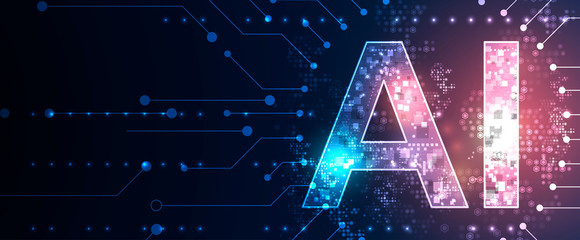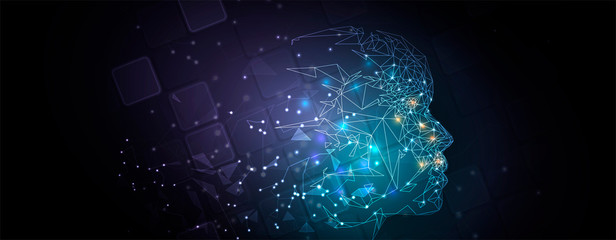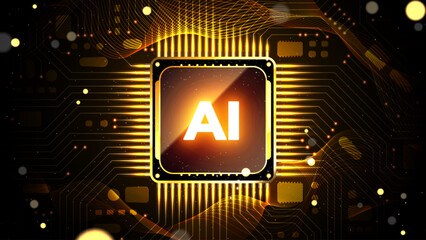Introduction
In the world of technology, few innovations have garnered as much attention as blockchain and artificial intelligence (AI). Blockchain is a decentralized ledger technology that ensures data security and transparency. AI, on the other hand, refers to machines’ ability to mimic human intelligence, learning from data, making decisions, and performing tasks autonomously. When these two powerful technologies are combined, they create a synergy that promises to revolutionize various industries.
The Synergy Between Blockchain and AI
How Blockchain Enhances AI
Blockchain provides a secure and transparent environment for data storage, which is crucial for AI systems that rely on vast amounts of data to learn and make decisions. By ensuring data integrity and preventing tampering, blockchain helps AI systems operate more reliably and accurately.
How AI Enhances Blockchain
AI can improve blockchain networks by optimizing algorithms for consensus mechanisms, fraud detection, and predictive analytics. AI’s ability to analyze patterns and predict potential issues enhances blockchain’s security and efficiency.

Key Benefits of Combining Blockchain and AI
Enhanced Data Security
Combining blockchain and AI enhances data security through decentralized data storage and advanced encryption techniques. This ensures that sensitive information remains protected from cyber threats.
Improved Efficiency
AI algorithms can streamline blockchain operations by automating processes and identifying inefficiencies. This leads to faster transaction processing and reduced operational costs.
Applications in Finance
Fraud Detection
AI-powered blockchain systems can detect fraudulent activities in real-time by analyzing transaction patterns and identifying anomalies. This helps financial institutions prevent fraud and maintain trust with their customers.
Automated Trading Systems
Blockchain and AI can create automated trading systems that execute trades based on pre-set conditions and real-time data analysis. This reduces human error and increases trading efficiency.

Healthcare Innovations
Secure Patient Data Management
Blockchain ensures the secure storage and sharing of patient data, while AI can analyze this data to provide personalized healthcare recommendations. This combination enhances patient care and protects sensitive medical information.
Personalized Medicine
AI algorithms can analyze patient data stored on blockchain networks to develop personalized treatment plans. This approach improves treatment outcomes and patient satisfaction.
Supply Chain Management
Transparency and Traceability
Blockchain provides an immutable record of each step in the supply chain, while AI can analyze this data to optimize logistics and prevent counterfeiting. This ensures product authenticity and improves supply chain efficiency.
Automated Inventory Management
AI-powered blockchain systems can automate inventory management by predicting demand and managing stock levels in real-time. This reduces waste and improves profitability.
Smart Cities and IoT
Secure IoT Networks
Blockchain ensures the security and integrity of data transmitted between IoT devices, while AI analyzes this data to optimize city operations. This combination enhances the efficiency and security of smart city initiatives.
Data-Driven Urban Planning
AI can analyze data stored on blockchain networks to provide insights for urban planning and development. This leads to smarter, more efficient cities that better meet the needs of their residents.
Energy Sector
Optimized Energy Distribution
AI algorithms can optimize energy distribution by analyzing consumption patterns and predicting demand. Blockchain ensures transparent and secure transactions in energy markets, leading to more efficient energy management.
Decentralized Energy Markets
Blockchain enables decentralized energy markets where consumers can buy and sell energy directly. AI can manage these transactions and ensure fair pricing based on real-time data analysis.
Challenges and Considerations
Technical Challenges
Integrating blockchain and AI presents technical challenges, including scalability issues and the need for substantial computational power. Addressing these challenges requires ongoing research and development.
Ethical and Privacy Concerns
The use of AI and blockchain raises ethical and privacy concerns, particularly regarding data ownership and consent. Developing ethical guidelines and privacy standards is essential for responsible implementation.
Future Trends and Predictions
Integration of Quantum Computing
The future of blockchain and AI may involve the integration of quantum computing, which can provide unprecedented computational power. This could further enhance the capabilities of both technologies.
Regulatory Developments
As blockchain and AI continue to evolve, regulatory frameworks will need to adapt to address new challenges and opportunities. Future regulations will likely focus on ensuring security, privacy, and ethical use.
Case Studies
Case Study 1: IBM Food Trust
IBM Food Trust uses blockchain and AI to enhance food supply chain transparency and safety. The platform enables tracking of food products from farm to table, reducing food fraud and improving food safety.
Case Study 2: SingularityNET
SingularityNET combines AI and blockchain to create a decentralized AI network. The platform allows AI agents to interact and collaborate, providing a marketplace for AI services that ensures transparency and security.

Conclusion
The combination of blockchain and AI represents a powerful synergy that can transform various industries. By enhancing data security, improving efficiency, and enabling innovative applications, these technologies are stronger together. As we continue to explore their potential, we must also address the challenges and ethical considerations to ensure a responsible and beneficial integration.

FAQs (Frequently Asked Questions)
- What is blockchain technology? Blockchain is a decentralized ledger technology that records transactions in a secure, transparent, and immutable manner. It ensures data integrity and prevents tampering by distributing data across a network of nodes.
- How does AI benefit from blockchain? AI benefits from blockchain’s secure and transparent data storage, which ensures the integrity of the data used for training and decision-making. Blockchain also enhances AI’s ability to operate reliably and accurately.
- What industries benefit the most from combining blockchain and AI? Industries such as finance, healthcare, supply chain management, smart cities, and energy benefit significantly from the combination of blockchain and AI. These technologies enhance security, efficiency, and innovation in these sectors.
- Are there any risks associated with combining blockchain and AI? Combining blockchain and AI presents risks such as technical challenges, scalability issues, and ethical and privacy concerns. Addressing these risks requires ongoing research, development, and the establishment of ethical guidelines.
- What does the future hold for blockchain and AI? The future of blockchain and AI involves the integration of emerging technologies such as quantum computing and the development of regulatory frameworks to ensure security, privacy, and ethical use. These advancements will further enhance the capabilities and applications of blockchain and AI.





